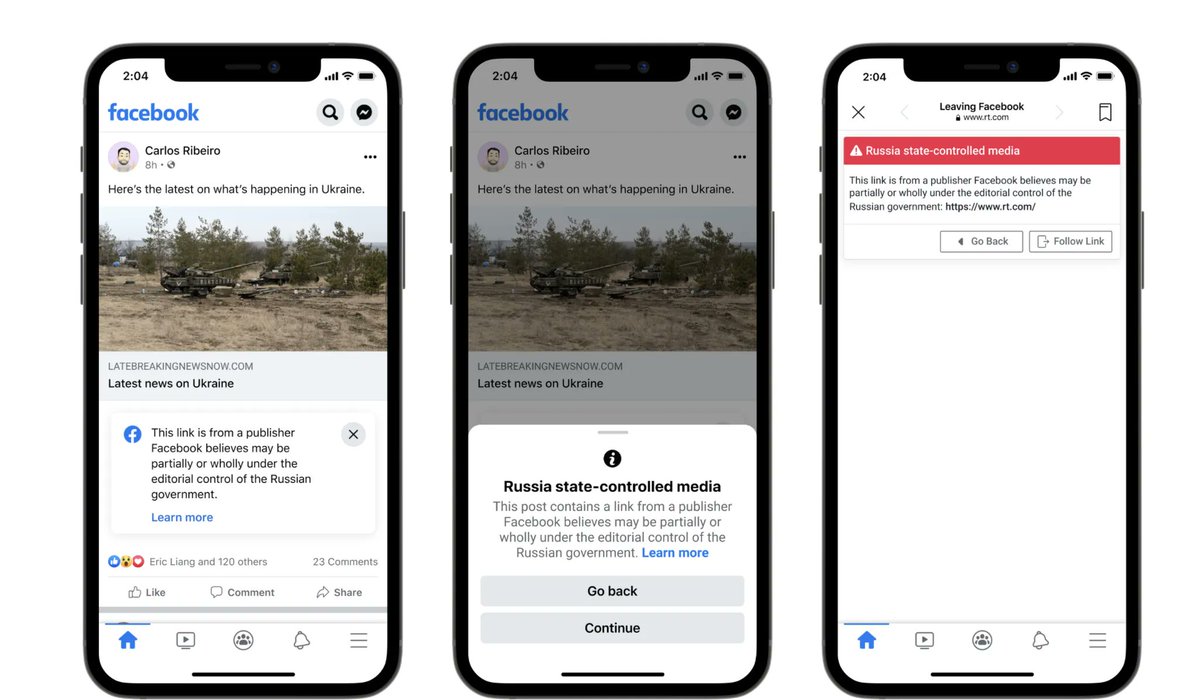
Head of security policy at Meta. Countering adversarial threats. Previously Illumio, NSC, DOJ. He/him. Dreaming of fall in the green mountain state.
How to get URL link on X (Twitter) App



https://twitter.com/ngleicher/status/14974172419476070432/ FB Pages/IG accounts: Over the past several days, we began demoting content from Facebook pages and Instagram accounts from Russian state-controlled media outlets, and we are making them harder to find across our platforms.


https://twitter.com/ngleicher/status/1496909654072315915?s=20&t=5dkHTWw-qH_e7msD7dPXVA

https://twitter.com/wiczipedia/status/1484905150754009088The last thing we should be giving to people bearing children is *more* uncertainty and more things to be frightened of. So thank you @wiczipedia for highlighting this.
https://twitter.com/jsrailton/status/14849257751365795942/ The initial target media here is newspapers, and classified ads at that. It’s easy to imagine this would be ineffective — how many people read classified ads today? If you only look at the seeding in isolation, you’d miss the broader operation.


https://twitter.com/olgs7/status/1458487517288747010?s=202/ Let's focus on disinfo, b/c "misdis" and "misdismal" are really just attempts to mitigate the core challenge with our disinfo definition that only make things (much) worse. "Disinfo" generally means deceptive content shared with the intent to deceive.

https://twitter.com/ngleicher/status/1425171562597027841?s=20
https://twitter.com/ngleicher/status/1415681404067741703Remember that whether this is authentic or not, it's almost certainly *someone's* influence operation. The more we engage with it as an effort to manipulate public debate and focus on how to respond, who is behind it, and where they're headed next, the better off we'll be!

https://twitter.com/lageneralista/status/14149719262510243842/ At FB we look at factors like the length of an op and how many followers it has, but these have their limits -- especially as tactics evolve. An op can be long-lived but unsuccessful, and can reach only a few significant people and still generate significant reaction.
https://twitter.com/davidakaye/status/1399154580072587264Defenders are grappling with how to adapt protocols designed for clearly delineated “bad guys” (ISIS, “The Russians”) who hide their identity online to tackle diffuse, blurred threats where witting deceivers mobilize large, authentic communities w/out hiding their identity.
https://twitter.com/ciaranmartinoxf/status/1330159772084146179In this age of perception hacks and IO, perception of security *is* security. And no one will believe a system is secure without a trusted source of truth. Empowering voices to serve they role will be very hard in today’s low-trust reality, but that even more important.